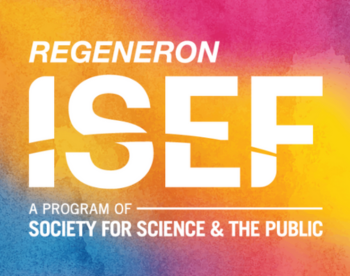Boost Your College Applications with The Concord Review: A Prestigious Journal for High School History Research
[elementor-template id="1682"]
In terms of background enhancement projects for studying abroad, it seems that compared to the myriad of competitions available to STEM students, the options for humanities students are relatively few. However, humanities students also have their own "ace" projects, and The Concord Review (TCR) is one of the best!
Let’s take a look at the prestige of TCR! According to statistics, students who have published articles in TCR have:
- 152 students admitted to Harvard
- 76 students admitted to Princeton
- 123 students admitted to Yale
- 86 students admitted to Stanford
The Concord Review offers four submission opportunities each year, with the most recent one on August 1 (Western Time Zone)! Students who want to submit should not miss it!
The Concord Review
Exclusive to High School Students, Hardcore History Research
Founded in March 1987, The Concord Review (TCR) is the world’s only academic journal for high school students focused on history. Its mission is to publish and honor high-quality historical research papers written by students under the age of 18.
TCR is dedicated to recognizing and publishing outstanding history papers written by high school students. So far, authors from 46 U.S. states and 41 countries have published 1,362 research papers. Being published in TCR is considered the highest honor in the field of high school history.
Suitable Students
High school students in grades 9-12, regardless of nationality, who are interested in writing and have their own independent academic writing works.
Submission Deadlines
TCR is a quarterly journal, and there are four submission opportunities each year:
- Summer: Due by February 1 (Western Time Zone)
- Fall: Due by May 1 (Western Time Zone)
- Winter: Due by August 1 (Western Time Zone)
- Spring: Due by November 1 (Western Time Zone)
Content Requirements
Before submitting, students must become TCR members.
- The paper must be in English and can focus on any historical topic (domestic or international).
- Word count: 4,000-6,000 words. Submissions under 4,000 words are allowed, but they will have lower competition strength compared to more substantial papers (the longest paper ever published was 21,000 words, and the average length is about 5,500 words).
- The paper must be unpublished and not featured in the student’s school publications, except for self-published works.
- Submissions should be in MS Word or RTF format. Other formats like Apple Pages, Google Docs, or PDFs are not accepted. Only one file should be submitted, including footnotes and the bibliography.
P.S. Papers will be reviewed by TCR's National Writing Committee, based on independent academic writing standards recognized by top U.S. universities such as Harvard, Yale, Princeton, Stanford, Virginia, and 33 other prestigious schools.
Awards and Honors
Each year, TCR selects the top 10 history papers to receive The Emerson Prize (the Emerson History Paper Award) to encourage excellent work.
This year, TCR has also established the inaugural Fitzhugh Award, named after the journal's founder and editor, Will Fitzhugh.
Humanities Student Vernita
Vernita has received offers from Stanford University, Columbia University, the University of Pennsylvania, the top-ranked liberal arts college Williams College, and many other top universities!
Her academic achievements and background enhancement include:
- SAT: Scored 1530 in one sitting
- AP: Scored 5 in all 8 AP exams
- Research published in TCR
Beyond having outstanding standardized test scores, Vernita integrated her passion for writing into her application through writing projects. She demonstrated her enthusiasm for writing to admissions officers. Among these, the most prestigious was her research published in The Concord Review. In her 11th grade, she conducted an independent historical study on France, which was later published in TCR.
In addition to humanities students improving their academic backgrounds through research, STEM students can also enrich their personal profiles by engaging in humanities projects. For many top U.S. universities, a humanities component has become an essential part of college applications.
[elementor-template id="1674"]



